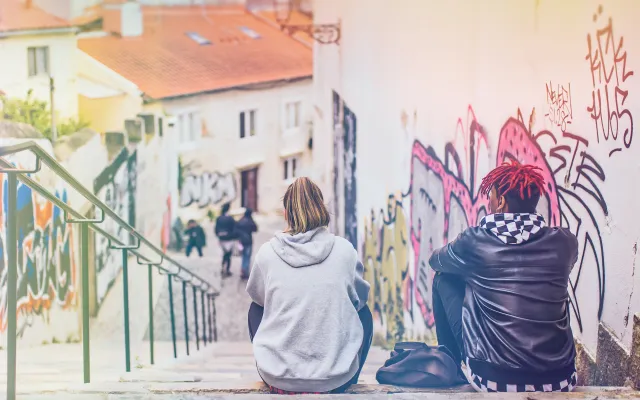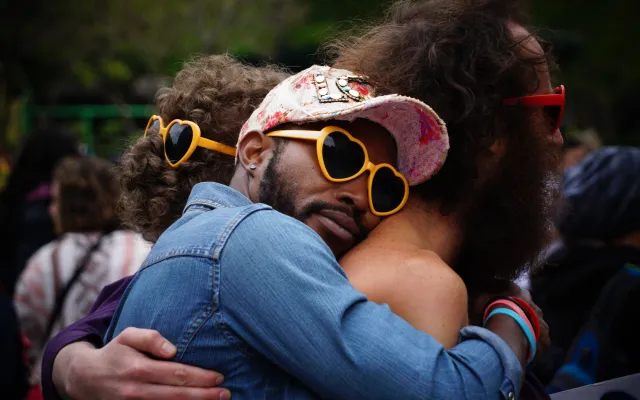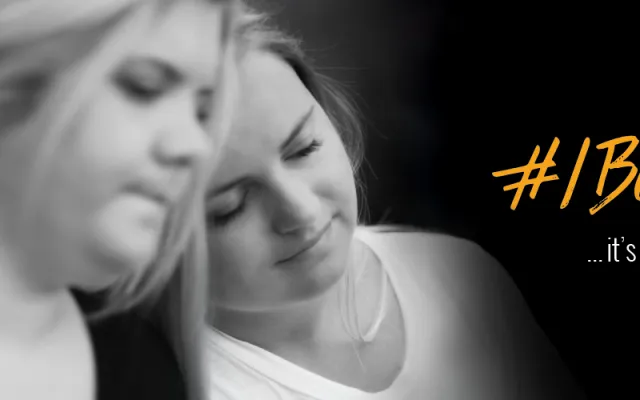Education & Initiatives
Education & Initiatives
Creating a safe and respectful campus community begins with a shared understanding of consent. Developing a culture of consent means moving beyond awareness and actively challenging the myths, misconceptions, and harmful norms that allow rape culture to persist. This starts with learning the core concepts of consent: clear communication, mutual respect, and ongoing agreement. Additionally, unlearning the stereotypes and misinformation that often shape our understanding of violence and relationships.
Transitioning from rape culture to a consent culture requires intention, accountability, and collective effort. Every member of our campus has a role to play in shaping the environments we learn, work, and socialize in. By recognizing harmful behaviours, challenging inappropriate comments or jokes, supporting survivors, and modeling respectful boundaries, we contribute to spaces where consent is the expectation, not the exception.
When we commit to this work together, change becomes possible. A consent culture is something we build through everyday actions and through the belief that everyone deserves safety, autonomy, and respect.
Upcoming Workshops, Trainings, and Events
16 days of Activism
The 16 Days of Activism Against Gender-Based Violence is an annual world-wide campaign that runs from November 25 (International Day for the Elimination of Violence Against Women) to December 10 (Human Rights Day). The campaign brings communities, organizations, and individuals together to raise awareness, promote prevention, support survivors, and take action to end gender-based violence in all its forms.
Throughout the 16 days, people are encouraged to engage in education, advocacy, and community initiatives that challenge harmful norms, highlight the impact of gender-based violence, and reinforce the message that everyone has a role in creating safer, more equitable spaces. the theme for 2025 is UNiTE to end Digital Violence against women and girls. Learn more about how Digital Harm and Tech facilitated Violence is impacting your communities.
November 25: International Day for the Elimination of Violence Against Women - Find the SGBVP Ambassadors in the PE Atrium (Centre for Sport & Wellness) from 11-2pm.
November 26: Join Student Wellness for a collaboration with Harm Reduction Week and play Sexual Health Jeopardy in the UHALL Atrium 10-2pm.
November 27: Join us for Bystander Intervention Training on campus in M1090 (Markin Hall) at 2pm. This one-hour training will help participants find the confidence and practical tools to recognize, interrupt, and prevent harmful or potentially violent situations. In this training, you’ll learn how to identify early signs of escalating behaviour, understand your role as a bystander, and choose safe and effective ways to intervene. Participants also explore common barriers to taking action, strategies for supporting individuals impacted by violence, and ways to contribute to safer, more respectful campus environments. By building these skills, we become more prepared to step in, speak up, and help create a culture where violence is not tolerated and everyone feels supported. Registration is encouraged. Bystander Intervention Training
November 28: Find the SGBVP Ambassadors at the Tech Facilitated Violence and Digital Harm information booth! UHALL Atrium 11-2pm.
December 1: FREE PLANTS! Growing a Culture of Consent Day 1: UHALL Atrium 10-12pm a collaboration with Student Wellness. Come find us for a plant and conversations around consent on campus.
December 2: FREE PLANTS! Growing a Culture of Consent Day 2: PE (Centre for Sport and Wellness) 10-2pm. Come find us for a plant and conversations around consent on campus.
December 3: Clare's Law Info Booth Library Hall (just outside of the Library at the main entrance) 10-12:30pm. Learn about the history of Clare's Law and how you can access information with the police if you feel you might be in an unsafe relationship.
December 4: REES: Cookies and Consent: We are here to hear! Markin Hall 10-12pm & UHALL Atrium 2-4pm. Help yourself to some tasty cookies provided by local superstars: Cookie Crimes and learn more about 3rd Party Reporting and Reporting Sexual Violence on Campus using the REES platform.
December 5: National Day of Remembrance and Action on Violence Against Women: Join us in Library at the Women's Peace Memorial Garden from 11:30-2pm and take a moment to remember the 14 women who lost their lives at Ecole Polytechnique and reflect on our commitment to action in responding to Gender-based Violence in our communities. A Digital Harm Workshop will be presented at 11:30am with pot painting to follow.
December 8: Join the SGBVP Ambassadors to discuss Tech Facilitated Violence and Digital Harm information booth in PE (Centre for Sport and Wellness) from 10-2pm.
December 9: Power through the last few days of the semester and check out our Wellness and Selfcare table at the UHALL Atrium from 11-2pm.
First Responder to Sexual Assault and Abuse Training
Identify, Respond, and Refer:
Developed by the Association of Alberta Sexual Assault Services (AASAS) with support from the Government of Alberta and Women and Gender Equality Canada, this beginner yet comprehensive training builds the skills and confidence to respond effectively to disclosures of sexual assault and abuse.
Who Should Attend:
Professionals, paraprofessionals, and community members who may support individuals impacted by sexual violence.
Learning Outcomes:
Participants will learn to:
Define sexual violence and its various forms
Understand its short- and long-term impacts
Provide a safe, supportive first response
Challenge harmful myths and beliefs
Identify local resources and referral options
This Alberta-based workshop uses provincial resources and guidelines and is inclusive of the full continuum of sexual violence across the lifespan. When offered in community, this course can cost up to $300, but we are able to offer it to the campus community (students, staff & faculty) at no-cost.
Note: This is a two-day training, you must attend both days in their entirety in order to receive a certificate
***December 2025 Training is FULL. Email: sexualviolenceinfo@uleth.ca to be added to the email list to advise of the next training opportunity ***

Understanding Sexual Violence
The majority of people affected by gendered violence are women, girls, and trans people. However, individuals of all genders can be victims of gendered violence, including men and boys. Sexual and gendered violence often intersects with ableism, racism, and other forms of oppression so that experiences of gendered violence may not only be about gender, but also about other aspects of an individual’s identity.
Sexual violence is about power, force and control over the victim. It is not about love, lust ,or sexual desire. Sexual violence can happen without physical force. A victim may be threatened with words, manipulated or pressured into doing something they do not want to do. Or, a victim may be incapacitated and unable to provide consent.
More than 82% percent of sexual assaults are committed by someone the victim knows - a friend, acquaintance, date, teacher, family member, professor, advisor or coach. Sexual assault often occurs in a private place, such as the residence of the victim or perpetrator, but can also happen in a more public place such as a party or other social event. Sexual assault can happen in dating, acquaintance, common-law or married relationships. It can happen in heterosexual and same-sex relationships.
Material excerpted from Developing a Response to Sexual Violence: A Resource Guide For Ontario’s Colleges and Universities.

What is Sexual Violence?
Any sexual act or act targeting a person’s sexuality, gender identity or gender expression, whether the act is physical or psychological in nature that is committed, threatened or attempted against a person without the person’s consent. This includes, but is not limited to sexual assault, sexual harassment, stalking, indecent exposure, voyeurism, sexual exploitation, degrading sexual imagery, distribution of sexual images or video of a community member without their consent, and cyber harassment or cyber stalking of a sexual nature.

Defining Consent
Consent is a voluntary, conscious, active and ongoing agreement to participate in sexual activity. In other words, it's a freely given, enthusiastic, clearly communicated “yes.”
Just because consent was given in the past does not mean that it automatically exists for future sexual activity. Each person has to give consent every time, whether in a one-time encounter or a long-term relationship.
According to the Canadian Criminal Code, there is no consent if
-
someone else says “yes”
-
a person is incapable of consenting because they are unconscious, asleep or impaired by drugs or alcohol
-
there is an abuse of power, trust or authority
-
a person is pressured, manipulated, threatened, intimidated or otherwise coerced into saying "yes"
-
a person does not clearly say “yes” or says or implies “no” through words or behaviour
-
consent is withdrawn or a person changes their mind at any time before or during a sexual activity.
Sexual activity that is not consensual is sexual assault.
Facts & Myths
Misconceptions about sexual assault are often referred to as "rape myths" although they apply to the broad scope of sexual violence. Myths minimize the seriousness of sexual violence and confuse our understanding of what consent means. Unfortunately, they can also contribute to the social context in which individuals are reluctant to report, blame themselves for what happened, or worry that they won't be believed. Myths can create a climate of victim blaming in which individuals responsible are excused for their actions.
Myth: Sexual assault only “counts” if there is physical force, visible injury, or a weapon involved.
Fact: According to the Criminal Code of Canada, sexual assault is any sexual activity without consent, regardless of whether there are physical injuries or a weapon used.
Myth: Someone who is drunk or high can still consent if they don’t say “no.”
Fact: Under the Canadian Federal Law, anyone who is under the influence of drugs or alcohol cannot consent to sexual activities.
Myth: Being in a relationship means ongoing permission for sexual activity.
Fact: Entering into a relationship does not give anyone right or ownership of another person’s body.
Myth: There is a “right” way for survivors to react or heal after sexual violence.
Fact: Individuals who are impacted by sexual violence, cope and heal in different ways.
Myth: Sexual assault only happens to certain types of people or in specific situations.
Fact: All people are vulnerable to sexual assault. Anybody of any age, sex, class, race, religion, sexual identity, occupation or physical appearance can be sexually assaulted.
Myth: If someone says yes to one sexual act, it means they want to engage in everything.
Fact: If someone agrees to engage in one intimate act, that does not mean they agree to everything.
Myth: Sexual assault is rare.
Fact: In Canada, 39% of all Canadian women have experienced at least one incident of sexual assault after the age of 16.
Myth: Sex workers cannot be sexually assaulted because of the nature of their work.
Fact: Sex Workers have the right to give and withhold consent to any sexual activity, and therefore, can be subjected to sexual assault just like anyone else.
Myth: People who have had multiple partners are “less believable” or have fewer rights regarding consent.
Fact: Whether or not someone has had multiple sexual partners, their rights to consent do not change.
Myth: Most reports of sexual assault are false or exaggerated.
Fact: The number of false reports for sexual assault is very low.
For more information, visit Statistics Canada.

Bystander Campaign

#Ibelieveyou Campaign

